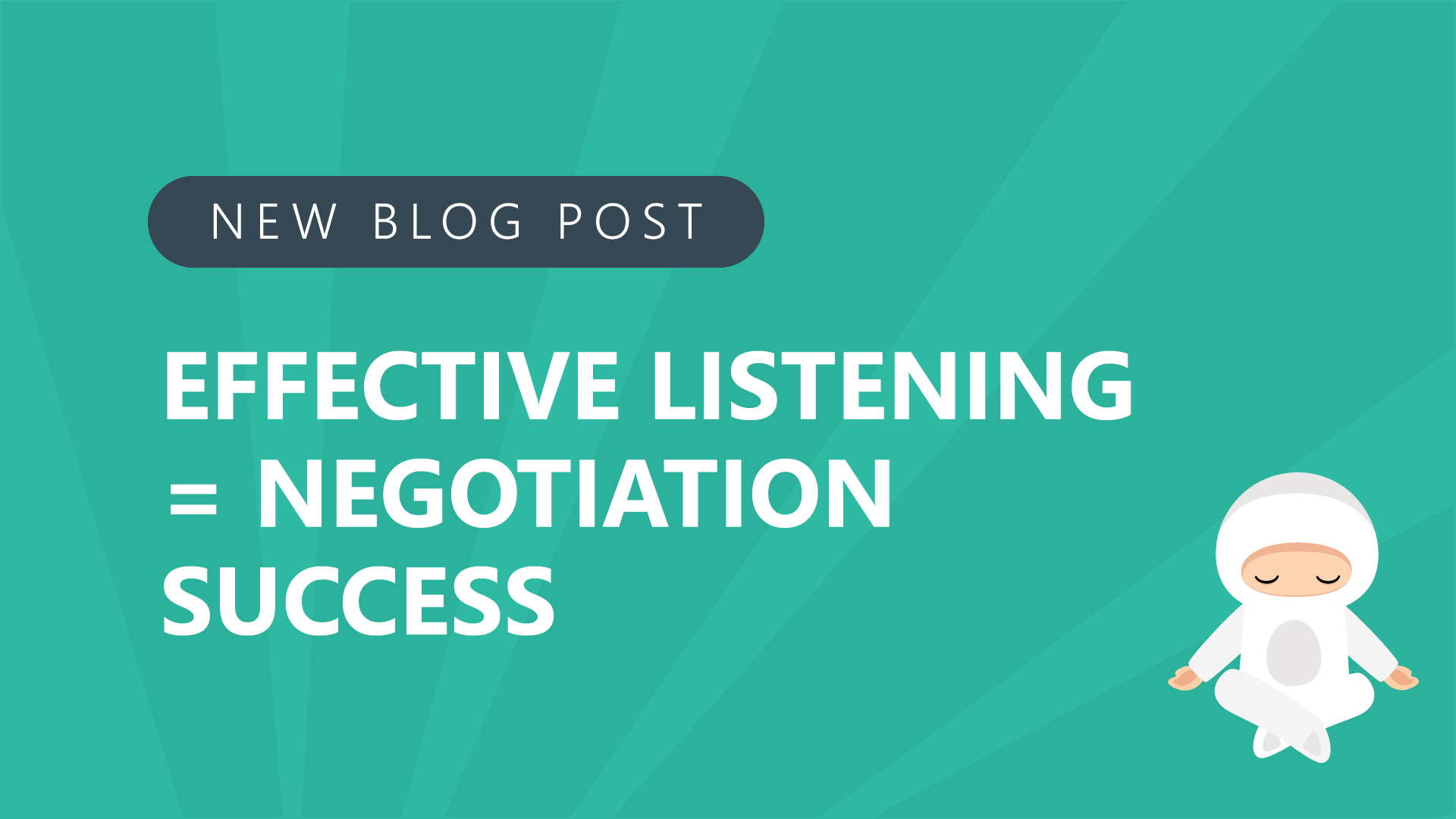We all believe that we know how to listen, but it’s not true. The truth is that what we call “listening” is only hearing. Hearing is done easily because it’s an automatic function of the ears and the brain, but listening means that we process what others say in a way that enables understanding and empathy. And it doesn’t happen instantly just by hearing the words the person says.
Effective listening is a process, and it’s hard. Why?
Let’s illustrate the answer with a common scenario from the business world.
Sally Brown, is an outstanding sales professional. She is meeting her prospect to engage in the most important negotiation of a deal that she’s been working on for months. What is her objective?
The sales training answer is, “To understand and meet the needs of the customer,” but we all know that in the real world it’s more likely that Sally’s objective is, “To close the deal.” Why? For any number of reasons…
- She wants to return to her office triumphant
- She has a quota to meet
- She needs the income the sale would provide
These are all real, legitimate reasons to want to close a deal. But notice something fundamental about all of them.
They are all self-centered
Effective listening is hard because it requires us to be others-centered, and being others-centered is hard. To listen well, you have to engage in an interaction that is not about you. You have to focus on the other person, to become curious, to open yourself up to their needs and wants and desires, to be willing to explore their perspective, feelings, and beliefs.
When we approach negotiations with a commitment to listen and when we actually know how to listen well, the negotiation will go better. Often, the things we need from the interaction wind up happening even without focusing directly on them. That’s because we’re devoting our attention to the needs behind the negotiation, the things that once addressed bring us into alignment with the people on the other side of the table.
Listening is the superpower that fuels successful negotiation
In recounting a story from his own experience, hostage negotiator Dan Oblinger describes the key role listening played in talking a suicidal woman down from a bridge.
“What it came down to is, once she started talking and telling her story – it was that she’d lost her infant son and she was in an incredible amount of pain – and her thought was, ‘If I could just be with my baby, then everything would be OK.’ So then there’s this immediate thought that complements it too, ‘Well, if I die then I’ll be with my baby.’ But she’s conflicted, she hasn’t jumped yet because she knows that maybe that’s not the entire story. “
There was much more needed in the situation Dan describes than telling the woman “Everything is going to be alright,” or “You don’t want to do this.” Her real need was to be able to express her pain and to find a way through it. Listening is what enabled Dan to understand that. He continues with the story…
“If you’re trying to figure out how to craft (a response)… you don’t. You just listen to her. Because she’s going to calm down and she’s going to begin to think a little more. She’s going to start trusting you and she’s going to now disclose more and tell the truth more…. Themes for a surrender, themes for living develop and you have to discover them, you don’t make them. I find that to be true in sales and procurement as well. The value and the agreement are there, but it’s about discovery, not about machination.”
Don’t miss the powerful points Dan makes. People are complicated emotional beings, not always logical and not always easy to understand. The more you engage in conversations that provide the opportunity to truly listen, the more the pieces of that complex human puzzle come together. That’s when you’re able to discover the true needs in the situation and address them with solutions that everyone feels is a fit.
It happens on bridges and it can happen in boardrooms.
You can hear how Dan was able to resolve the crisis situation on the bridge and learn how to develop the superpower of effective listening, on this episode of Negotiations Ninja.

